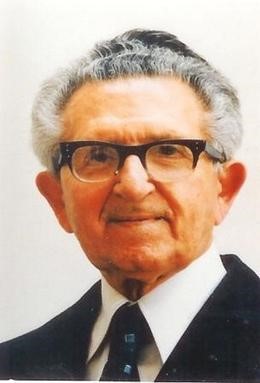The production ‘Ġawhar Misjub – an Operatic Banquet’ includes operatic excerpts by different Maltese composers highlighting Malta’s rich heritage in operatic music. In this article one can learn more about the composer Maestro Chev. Carmelo Pace (August 17, 1906 – May 20, 1993).

Maestro Chev. Carmelo Pace (August 17, 1906 – May 20, 1993) was a Maltese composer, and a professor of music theory and harmony.
By the time he was 20, Pace had composed suites for piano, violin and violoncello, followed by numerous cantatas, orchestral and chamber music, sacred hymns, two ballets, band marches, concertos, and an oratorio. His 1931 composition, Maltesina, a musical fantasy based largely on traditional Maltese folk tunes and għana, was premiered by the Highland Fusiliers’ Band in Palace Square. It remains a popular choice among marching bands during Malta’s village festa season.
Among his most notable works are four operas, all of which are based on Maltese history, legend and folklore. Caterina Desguanez (1965), libretto by Ivo Muscat Azzopardi, tells the story of a Turkish slave who falls in love with his master’s daughter. I Martiri (1967), libretto by Vincenzo Maria Pellegrini, features the uprising against the French occupiers in Napoleonic Malta. Angelica (1973), libretto also by Vincenzo Maria Pellegrini, is based on the Maltese legend of the Bride of Mosta. Ipogeana (1976), libretto by Pellegrini, is about Neolithic Malta during the age of the mysterious temple builders.
In 1982 he composed the Stabat Mater for soprano, tenor, bass, mixed choir and orchestra. This was premiered by the St Monica Choir, under the direction of Sister Beniamina Portelli.
Pace achieved international recognition when his symphonic poem Jubilamus was played by the Kyoto Symphonic Orchestra during Expo ’70 in Japan. His works have also been played in the United States, Russia, England, Wales, France, Italy, Germany, Norway, Sweden, Poland, Egypt, India and Argentina.
Carmelo Pace’s music is often melodious, but at times quite characteristic of the early 20th century music tendencies. In his more lyrical moments, his music shows some references to verisim as well as Ravelian harmonies. Often of an intimate character, his more adventurous language is more abstract and atonal without necessarily being dodecaphonic.
Following Pace’s death, on May 20, 1993, his manuscripts and other works were transferred to the Cathedral Museum in Mdina, although the musical scores to his operas remain at the Manoel Theatre Museum in Valletta.
‘Ġawhar Misjub – An Operatic Banquet’ will premier on the 27th of May 8 pm at St.Agatha Auditorium , Rabat.
Book your seats now for FREE by following this link  or scanning the QR code beneath.
or scanning the QR code beneath.
